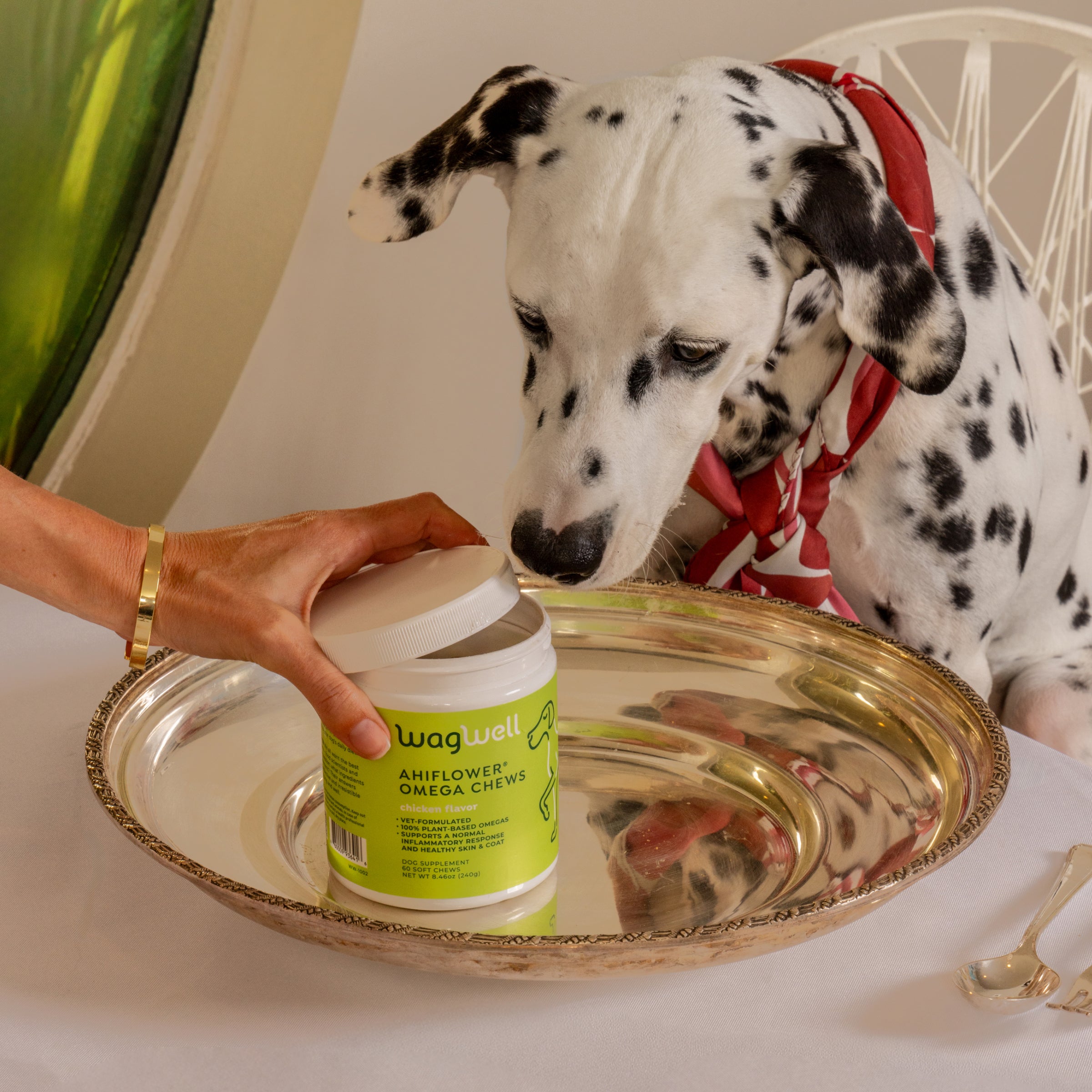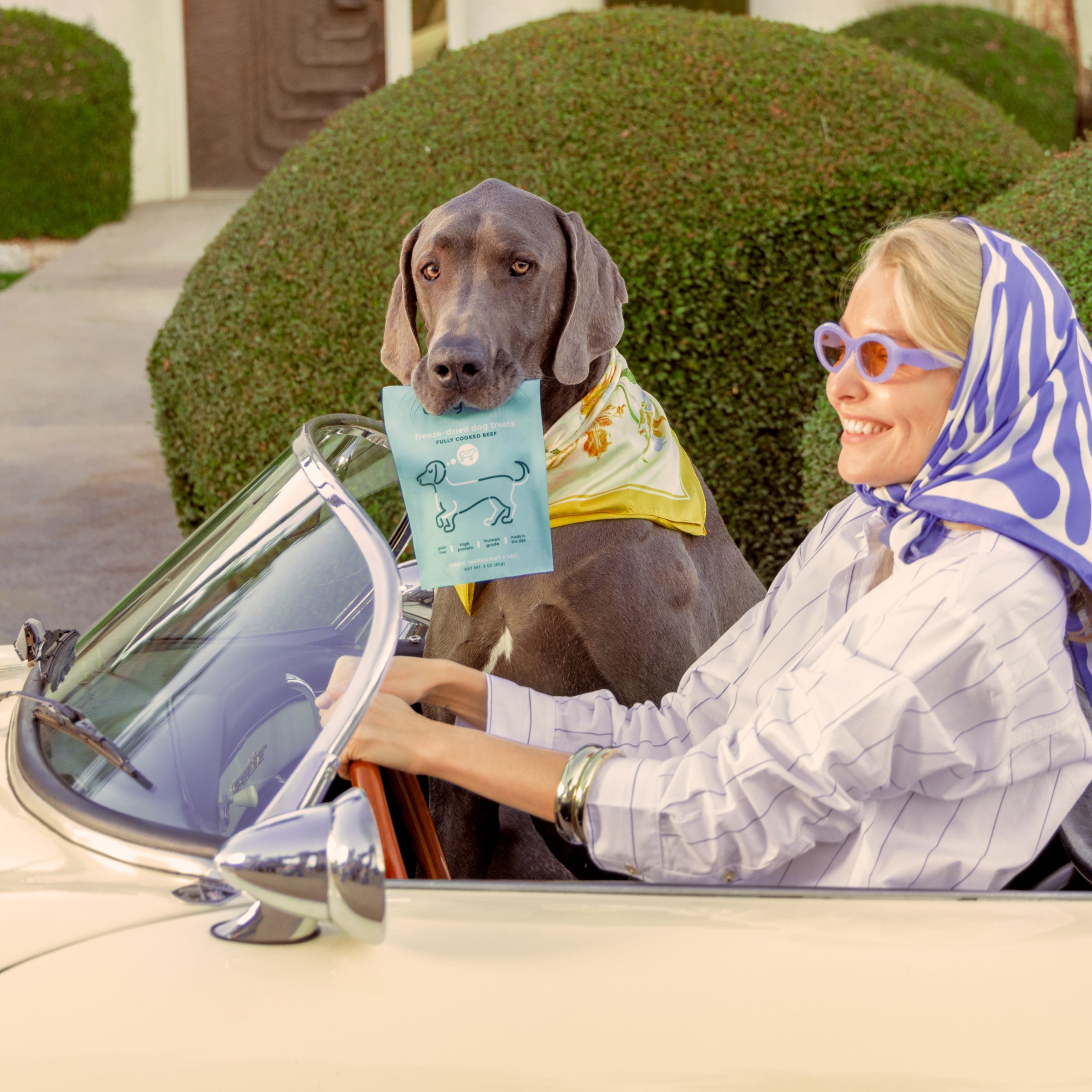Essential oils have taken over the world. The last few years have seen an increase in essential oil diffusers sold due to the gaining popularity of holistic medicine. Essential oils are highly concentrated plant matter that have proposed benefits like supporting digestion, alleviating aches and pain, relieving headaches, promoting restful sleep, and more. But for dogs, these simple vials of oil could have dangerous effects on their health.
Dogs vs. Essential Oils
A dog’s sense of smell is one of their biggest assets. They gather large amounts of information about their environment and other animals around through sniffing. They’re capable of identifying the health of an animal, their gender, and even the mood of a human or fellow canine.
Compared to humans, dogs' noses are 10,000 to 100,000 more acute and contain around 50 scent receptors for every one receptor that we have. This leads to increased sensitivity when a smell comes in a large abundance or potency like an essential oil. For context, it takes 8 pounds of lavender, 313 pounds of rose petals, and 125,000 jasmine buds in order to create 12mL (or half an ounce) of their respective essential oils. Exposure to highly concentrated substances can lead to dogs getting overwhelmed and could even stress them out.
Essential oils that are toxic cannot be consumed in any format by dogs. You could face skin irritation from direct contact with their skin, respiratory issues if inhaled through the air (if you’re using a diffuser), or digestive and other issues if licked.
When an essential oil is applied to the skin, it gets absorbed into the bloodstream and is eventually metabolized through the liver. This is particularly problematic for puppies and young dogs, those with liver diseases, and elderly dogs. Before starting any use of essential oils in your dog, you need to consult your vet to ensure that they are safe for the stage of life your dog is in.
So, What Is Toxic?
Not all essential oils are created equal when it comes to safety in dogs. The levels required to be toxic are dependent on the individual plant/scent. Some essential oils will require a small amount to harm your pup, while another will need significantly more. Here’s a list of some of the toxic essential oils to avoid:
- Pennyroyal can cause nerve damage, seizures, and respiratory impairment.
- Pine can lead to irritation in the skin, mucus membranes, and GI tract.
- Tea Tree poisoning can happen in as little as 7 drops of pure oil.
- “Warm” spices like cinnamon, nutmeg, and clove could lead to low blood sugar, liver disease, and vomiting.
- “Cool” spices like wintergreen, spearmint and peppermint can induce vomiting, kidney or liver failure.
- Ylang-Ylang has symptoms including difficulty breathing, weakness, and vomiting.
- Eucalyptus. Eucalyptus branches are often used in showers, as they drip the oils into the water and have aid anxiety, congestion, and other respiratory ailments. This practice can spread oils that are dangerous for your dog.
- Cooking spices like thyme, oregano, basil, garlic, tarragon, and mustard
- Citrus
Essential oils and the plants they come from should be considered separately as to whether they’re safe for your dog. A plant might be safe in low doses, but the highly concentrated oil version could cause serious harm. Signs of essential oil poisoning include:
- Watery eyes and nose
- Redness in the gums, lips, and skin
- Vomiting or drooling
- Difficulty breathing
- Panting, wheezing, or coughing
- Lethargy
- Tremors or wobbliness
- Low heart rate or body temperature
Regardless of the safety of a certain essential oil, improper use can lead to behavioral changes, adverse effects on the central nervous system, and respiratory issues.
Essential Oil Safety
With all the bad out of the way, it is good to note that not all essential oils are toxic to dogs. You can still use some for the benefits they provide. Some safe essential oils for your dog are listed below. This is not an exhaustive list, so you should talk to your vet if you have a specific essential oil in mind.
Lavender oil has antihistamine and anti-inflammatory properties that can soothe irritated skin or help with small wounds like bug bites and sunburns.
Frankincense oil promotes the feeling of peace and relaxation.
Rose oil supports irritated skin, prevents digestive issues, and can deter fleas and ticks.
Lemongrass oil is helpful to calm nerves, ease anxiety, and reduce stress.
Sandalwood oil can calm anxious dogs while balancing their emotions.
Chamomile Oil helps settle stomach problems and promote relaxation.
Fennel oil helps balance the pineal, thyroid, and pituitary glands and can help remove toxins from the body.
Helichrysum oil acts as an antioxidant and has antimicrobial and antibacterial properties.
Using essential oils requires you to know how to properly use them. You should never give undiluted oil to your dog or even use it on yourself. This could cause irritation either on the skin or in the mouth if they are given orally. All essential oils should be diluted with a carrier oil in either a 9:1 (for small dogs), 4:1 (for medium-sized dogs), or a 3:1 (for large dogs) ratio. Carrier oils like olive oil, coconut oil, avocado oil, and others are safe to mix with the essential oils for your dog’s consumption. If these are unattainable for you, you can also use water.
With the popularity that essential oils have amassed, there are many illegitimate companies that are selling products that are harmful. These oils might contain contaminants or adulterants that could cause a serious reaction. Make sure you are buying from a reputable company to ensure the safety of your dog.
Candles and Incense
Caution is necessary when burning candles and incense in the home. Aside from the fire risk, some candles contain chemicals that could harm your dog. Paraffin wax is a common wax used for candles that can emit toxic carcinogens, as the wax is a byproduct of petroleum. You should instead opt for beeswax or soy candles. Make sure that any candles or incense you burn don’t contain essential oils that are toxic to pets. If you must burn a candle made of paraffin wax or one that contains toxic oils, prevent your dog from entering that room until it has aired out.

Alternatives for Keeping Your House Smelling Good
If you use certain toxic essential oils as an air freshener but still want to keep your house smelling good safe for your pup, there are plenty of alternatives for you.
- Using essential oils in a well-ventilated area or keeping your dog out of a room until it has fully aired out is a way to continue using any oil you’d like.
- Febreeze is a pet-safe alternative.
- An air purifier can help clear smells by breaking down the molecules as the air goes through the machine.
- Enzymatic cleaners take scents out easily by breaking down the molecules that cause the smell.
- Passive diffusers are safe to have as they do not expel the oil into the air. Reed diffusers or some version of jewelry diffusers can be a good option.
Takeaways
Essential oils are neither all good nor all bad. The most important thing is to educate yourself to prevent any illness or injury to your dog. If your dog does suffer from essential oil poisoning, do not make them throw up as that can make the issue worse. Take your dog to a vet and call poison control as soon as possible.
In all cases, you should consult your vet about your use of essential oils, especially if they might be toxic. When it comes to using the oils for their intended benefit, your vet will know what is safe for your dog and the best way to give it to them.


